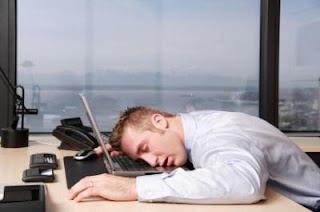
Conventional advice about keeping a stiff upper lip and staying cool can damage your career and lower your satisfaction in life, according to new research. If you want to be promoted and attain true happiness, you should get angry.
According to the Harvard Study of Adult Development, a piece of research that has tracked the lives of 824 men and women since 1965, those who repress their frustration are at least three times more likely to admit they had hit a glass ceiling in their careers and have disappointing personal lives. On the other hand, the study found, those who learned to harness and channel their anger were far more likely to be professionally well-established, as well as enjoying emotional and physical intimacy with their friends and family.
Dr Howard Kassinove, co-author of Anger Management: The Complete Treatment Guidebook for Practice, recently published a study of more than 2,000 adults in the Journal of Social Behaviour and Personality in which more than 55% said an angry episode produced a positive outcome.
Almost a third of participants also admitted that the episode helped them see their own faults.
Is it always bad to feel angry?
Anger is a natural response to feeling attacked, injured or violated. It's part of being human; it's energy seeking expression. Our anger can be our friend. It helps us survive, giving us the strength to fight back or run away when attacked or faced with injustice. In itself, it's neither good nor bad, but it can be frightening.
Angry feelings can lead to destructive and violent behaviour, and so we tend to be frightened of anger. The way we are brought up, and our cultural background, will very much influence how we feel about expressing anger. You may have been punished for expressing it when you were small, or you may have witnessed your parents' or other adults' anger when it was out of control, destructive and terrifying. Or you may have been frightened by the strength of your own bad temper. All of this encourages you to suppress your anger.
"People who are targets of anger in these studies will say things like, 'I really understand the other person much better now - I guess I wasn't listening before'," said Kassinove. "While assertive expression is always preferable to angry expression, anger may serve an important alerting function that leads to deeper understanding of the other person and the problem."
The philosopher and author Alain de Botton agrees that anger is a misunderstood emotion. "Though philosophers have traditionally been concerned with the pursuit of happiness, far greater wisdom would seem to lie in pursuing ways to be properly and productively unhappy," he said. "The stubborn recurrence of anger means the development of a workable approach to it must surely outstrip the value of any utopian quest for happiness."
We see critics as enemies when they're in fact our "angels in disguise" out there to lead us to tread the right path.
That's actually the key to letting go of anger - treat critics and all other people whose words and action offend you like they're your "angels in disguise."
Direct your mind to this line of thinking: "Why is this guy trying to hurt or provoke me? Why did he enter my life in the first place? What's his place in my development? Is he just trying to motivate me, make me do my 100 percent, make me a better person?"
If you reflect deeply enough, you will eventually realize that the person you want to kick in the butt is actually there to help protect your butt in case you fall down. He's toughening you up to be ready to take on any challenge in the future.



